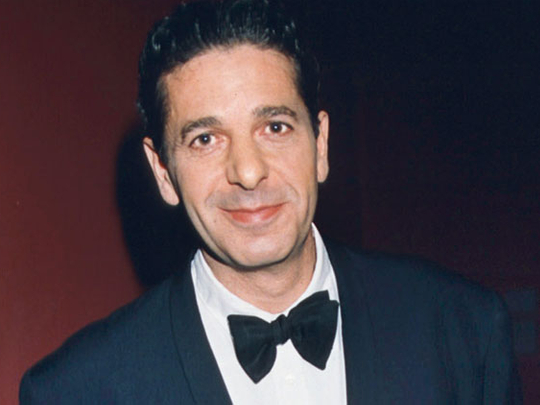
London: ‘The chances are, if you stop anyone in the street and ask them to name an advertising agency, the only one they'll know is Saatchi and Saatchi," says Chris Harris, the managing director of the ad agency Leagas Delaney.
"For most people, they are advertising. They're credited with helping create the 1980s, with putting and keeping Margaret Thatcher in power and with creating almost all the legendary ads that people remember from Silk Cut to Labour Isn't Working."
This week marks the 40th anniversary of the founding of Saatchi and Saatchi. In a move that has surprised many in adland and the media, the agency is throwing a party at the Saatchi Gallery which is owned by Charles, who quit the board in 1994 after a shareholder rebellion ousted his brother, Maurice.
The years of bad blood, client-pinching and name-calling this produced dubbed Saatchistory in the kind of wordplay relished by advertising creatives seems to have come to a halt as the staff of MC Saatchi, the company founded by the two disgruntled brothers, will join the bash.
"It is the most unlikely coalition since the present government," says Maurice Saatchi. "After the bitterness of the Saatchi wars, any publisher would turn this story down as completely incredible. It only goes to show that nothing is impossible."
Adman to the core, Saatchi is referencing the corporate slogan "Nothing Is Impossible" that is still carved into the entrance hall and the staircase of Saatchis' Charlotte Street building. And yet, is Saatchistory too appropriate a title?
The agency the brothers built up until it was the largest in the world is now ranked No 16 in Campaign's 100 top agencies with billings of £118.5 million; while MC is at No 7, boasting £193.7 million. Two agencies scrabbling around the middle of the top 20 are they still important?
New profile
Maurice is in no doubt that he and his brother changed advertising completely.
"When we began, media buying took place in the media departments of advertising agencies. We folded all our agency media departments into one centralised media buying organisation. Nowadays, all media buying is done by centralised buying organisations.
"We said it would be more efficient for companies to coordinate all their marketing disciplines with one supplier; people said this could never happen, and that this was just a way for us to cross-sell different services to clients. We called it one-stop shopping. Today, they call it integration and it is the holy grail of all large marketers."
"Did they change British advertising?" asks Harris. "No. They were a significant force in all those changes. I think CDP, BBH and maybe Lowe's would have embarked on the course they did anyway. All the same, the Saatchis did have an enormous impact on the Conservative party and, partly through their distinctive ads and partly for their corporate behaviour; they gave advertising a new profile in the public mind. They made advertising famous, I guess."
In the 1980s the Saatchis snapped up the US agency Bates to become the world's largest with a genuine international reach. They paid the first 100,000 salary to woo the creative Geoffrey Seymour.
But their ambition grew unreasonable, relying heavily on the City to fund deals, so when Midland Bank and then Samuel Hill Bank rebuffed the brothers' bids, bankers and shareholders became nervous. A falling share price led to the US fund manager David Herro launching the revolt that caused the brothers' exit. MC was founded. Charles went on to change the art market while Maurice, still in the office four days a week, stepped in to save the Conservative party at the last election.
Certainly, the Saatchi story is packed with the kind of legends that make the exploits of Don Draper and co in Mad Men, back on our screens this week, seem like non-alcoholic cocktails. For one Christmas party in 1989, the agency hired the vast Alexandra Palace and recreated the whole of its Charlotte Street offices inside.
Even the founding of MC Saatchi involved some smoke and mirrors. Moray MacLennan, the chief executive of MC Saatchi Worldwide, recalls pitching for the British Airways account, up for review when the airline protested against the brothers' removal from Saatchi Saatchi: "There were basically a handful of us working out of a single room. BA needed a worldwide network, the kind of agency that employs 20,000 people. So we took a lease for a day on an empty building, hired a group of models to pose as staff and held the pitch there the best looking employees I've ever seen.
"The building was just round the corner from BBH who were also pitching for the account and they told BA what we were up to. So they asked for a second meeting and we had to rehire the building, redress it, employ the same models and prepare loads of fake CVs. They certainly knew what we were up to, but I think they liked the chutzpah."











